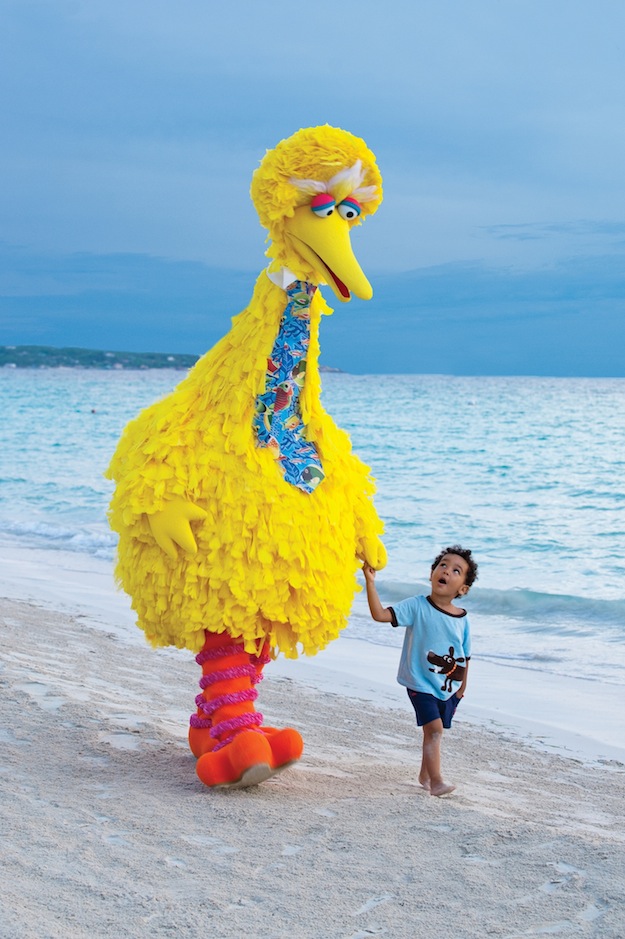
PBS's Excellent Response to Romney's Attack During First Presidential Debate

Editor’s Note: I unabashedly LOVE public television and radio, and having spent time in both the UK and Australia, where the public financially supports public media at a much higher rate (and has even more great programming than we do – with much smaller populations!), I think that if anything, this great-for-all resource should be supported at a higher rate than it is now, not be eliminated, as Romney suggested during the first presidential debate (He said: “I’m going to stop the subsidy to PBS.”). It is a cause worth fighting for. Especially because I believe quality programming shouldn’t be available only to those who can afford it, but to everyone. I grew up watching PBS and not much else on regular TV, because my grandmother didn’t believe it was very good quality. She was right; I learned more about the natural world from PBS than any other source, which led to my studying science, and even publishing this blog you read now. Bolding below is my own.
ARLINGTON, VA – October 4, 2012 – We are very disappointed that PBS became a political target in the Presidential debate last night. Governor Romney does not understand the value the American people place on public broadcasting and the outstanding return on investment the system delivers to our nation. We think it is important to set the record straight and let the facts speak for themselves.
The federal investment in public broadcasting equals about one one-hundredth of one percent of the federal budget. Elimination of funding would have virtually no impact on the nation’s debt. Yet the loss to the American public would be devastating.
A national survey by the bipartisan research firms of Hart Research and American Viewpoint in 2011 found that over two-thirds of American voters (69%) oppose proposals to eliminate government funding of public broadcasting, with Americans across the political spectrum against such a cut.
As a stated supporter of education, Governor Romney should be a champion of public broadcasting, yet he is willing to wipe out services that reach the vast majority of Americans, including underserved audiences, such as children who cannot attend preschool and citizens living in rural areas.
For more than 40 years, Big Bird has embodied the public broadcasting mission – harnessing the power of media for the good of every citizen, regardless of where they live or their ability to pay. Our system serves as a universally accessible resource for education, history, science, arts and civil discourse.
Over the course of a year, 91% of all U.S. television households tune in to their local PBS station. In fact, our service is watched by 81% of all children between the ages of 2-8.
Each day, the American public receives an enduring and daily return on investment that is heard, seen, read and experienced in public media broadcasts, apps, podcasts and online – all for the cost of about $1.35 per person per year.
Earlier in 2012, a Harris Interactive poll confirmed that Americans consider PBS the most trusted public institution and the second most valuable use of public funds, behind only national defense, for the 9th consecutive year.
A key thing to remember is that public television and radio stations are locally owned and community focused and they are experts in working efficiently to make limited resources produce results. In fact, for every $1.00 of federal funding invested, they raise an additional $6.00 on their own – a highly effective public-private partnership.
Numerous studies — including one requested by Congress earlier this year — have stated categorically that while the federal investment in public broadcasting is relatively modest, the absence of this critical seed money would cripple the system and bring its services to an end.
Learn more at: http://valuepbs.org/.
About PBS
PBS, with its nearly 360 member stations, offers all Americans the opportunity to explore new ideas and new worlds through television and online content. Each month, PBS reaches nearly 123 million people through television and more than 21 million people online, inviting them to experience the worlds of science, history, nature and public affairs; to hear diverse viewpoints; and to take front row seats to world-class drama and performances. PBS’ broad array of programs has been consistently honored by the industry’s most coveted award competitions. Teachers of children from pre-K through 12th grade turn to PBS for digital content and services that help bring classroom lessons to life. PBS’ premier children’s TV programming and its website, pbskids.org, are parents’ and teachers’ most trusted partners in inspiring and nurturing curiosity and love of learning in children. More information about PBS is available at www.pbs.org, one of the leading dot-org websites on the Internet, or by following PBS on Twitter, Facebook or through our apps for mobile devices. Specific program information and updates for press are available at pbs.org/pressroom or by following PBS Pressroom on Twitter.
CONTACT:
Anne Bentley, awbentley@pbs.org, 703-739-5021
Jan McNamara, jmcnamara@pbs.org, 703-739-5028





